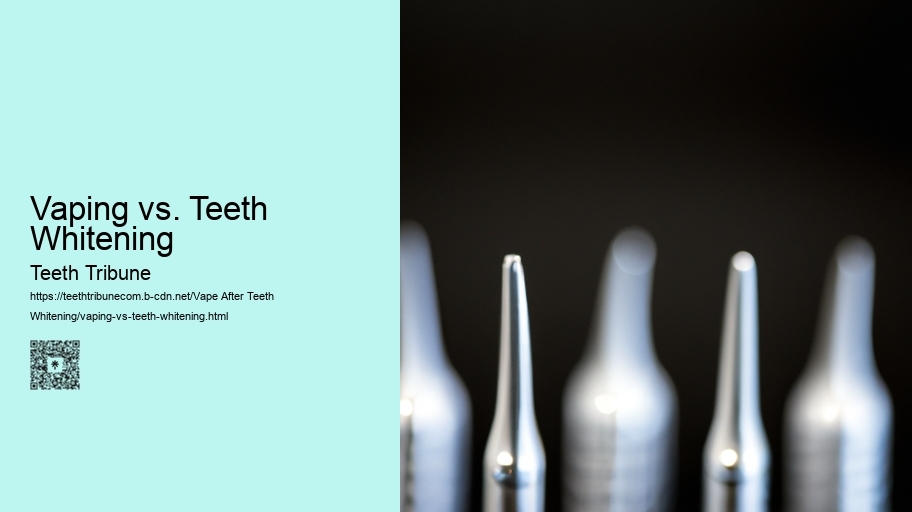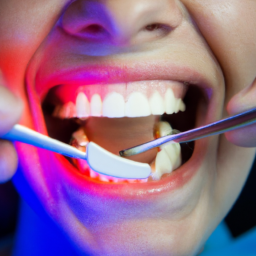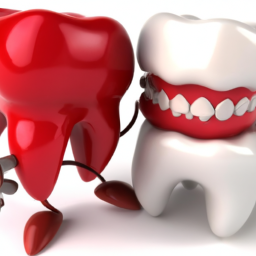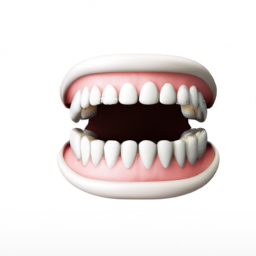

Vaping's impact on oral health is a topic of growing concern and research. Unlike traditional smoking, vaping doesn't involve tobacco combustion, but it's not without risks. The ingredients in e-liquids, including propylene glycol and vegetable glycerin, can affect oral tissues.
One of the main concerns is dry mouth, as vaping can reduce saliva production. Saliva is vital for neutralizing acids and washing away food particles, so reduced saliva can increase the risk of tooth decay and gum disease. Additionally, nicotine in vape juice can contribute to gum recession and teeth sensitivity.
Oral health for vapers should include regular dental checkups and a strict oral hygiene regimen. Hydration is also key to counteract the effects of dry mouth. Awareness and proactive care can significantly mitigate vaping's impact on oral health.
Professional teeth whitening procedures offer safe and effective results under the supervision of dental experts. These procedures use high-concentration bleaching agents, providing faster and more noticeable results than over-the-counter products. Dentists also ensure that the whitening process is tailored to individual needs and oral health conditions.
In-office whitening typically involves the application of a bleaching agent and the use of a special light or laser to enhance the whitening process. This method can significantly lighten teeth in just one visit. Dentists also offer custom-fitted whitening trays for at-home use, providing a more controlled and personalized whitening experience.
While professional whitening is effective, it's important for patients, especially vapers, to discuss their habits with dentists. This ensures that the chosen whitening method is suitable and that patients are aware of how vaping can affect their whitening results.
DIY teeth whitening solutions offer an affordable alternative to professional treatments. These at-home methods include whitening strips, gels, toothpastes, and natural remedies. While convenient, it's essential to use these products correctly to avoid damaging the teeth and gums.
Over-the-counter whitening strips and gels can be effective for removing surface stains. However, they should be used according to the manufacturer's instructions. Overuse can lead to tooth sensitivity and damage to the enamel.
For vapers, it's particularly important to be cautious with DIY whitening. The chemicals in vape juice can interact with whitening agents, potentially leading to uneven results. Regular dental checkups can help monitor the effects of both vaping and DIY whitening solutions on oral health.

Oral hygiene is paramount for vapers, as vaping can pose unique challenges to dental health. Regular and thorough oral care is essential to mitigate the effects of vaping. This includes brushing twice a day, flossing daily, and using an antiseptic mouthwash to reduce plaque and bacteria.
Vapers should pay special attention to hydration. Vaping can cause dry mouth, which reduces saliva flow, increasing the risk of tooth decay and gum disease.
Regular dental checkups are crucial for vapers. Dentists can provide personalized advice and identify any early signs of oral health issues related to vaping. Professional cleanings can also help remove vaping-related stains and plaque buildup.
Teeth sensitivity after vaping is a common concern among e-cigarette users. The heat and chemicals in vape aerosols can irritate the teeth and gums, leading to increased sensitivity. This discomfort is often felt when consuming hot, cold, sweet, or acidic foods and drinks.
To combat this, vapers are advised to use toothpaste designed for sensitive teeth. These toothpastes contain compounds that help block the transmission of pain signals from the tooth surface to the nerve. It’s also beneficial to avoid excessively hot or cold vape temperatures.
Regular dental checkups are important to ensure that teeth sensitivity isn't a sign of underlying dental issues. Dentists can provide treatments such as fluoride varnishes to strengthen tooth enamel and reduce sensitivity.


Vape juice can contribute to teeth staining, particularly liquids that contain nicotine. Nicotine, when combined with other chemicals in vape juice, can leave yellowish or brownish stains on the teeth, similar to those caused by traditional tobacco products.
To minimize staining, vapers should consider using nicotine-free e-liquids and maintaining a robust oral hygiene routine. Brushing twice a day with whitening toothpaste, flossing regularly, and using an antiseptic mouthwash can help prevent stains from setting in.
Professional dental cleanings are also effective in removing surface stains caused by vaping. Vape Juice For more stubborn stains, dentists can provide options like professional whitening treatments or veneers, depending on the severity.
Post-whitening oral care is crucial for maintaining the results of teeth whitening treatments. After whitening procedures, teeth can be more susceptible to staining and sensitivity. It's important to avoid foods and drinks that can stain teeth, such as coffee, red wine, and tobacco products, including e-cigarettes.
Using a toothpaste designed for whitened teeth can help maintain the results. Bleeding Gums These toothpastes are often gentler and aim to minimize tooth sensitivity. Regular flossing and using a fluoride mouthwash also contribute to maintaining a healthy, bright smile.
Routine dental checkups and cleanings play a significant role in post-whitening care. Regular visits allow dentists to monitor the condition of whitened teeth and provide touch-up treatments if necessary.
To maintain your whitening results while vaping, practice good oral hygiene, including regular brushing and flossing. Using whitening toothpaste and mouthwash can also help. Consider reducing your vaping frequency or switching to nicotine-free e-liquids.
It's recommended to wait at least 24-48 hours before vaping after teeth whitening. Vaping too soon can interfere with the whitening process and potentially lead to uneven results or re-staining of the teeth.